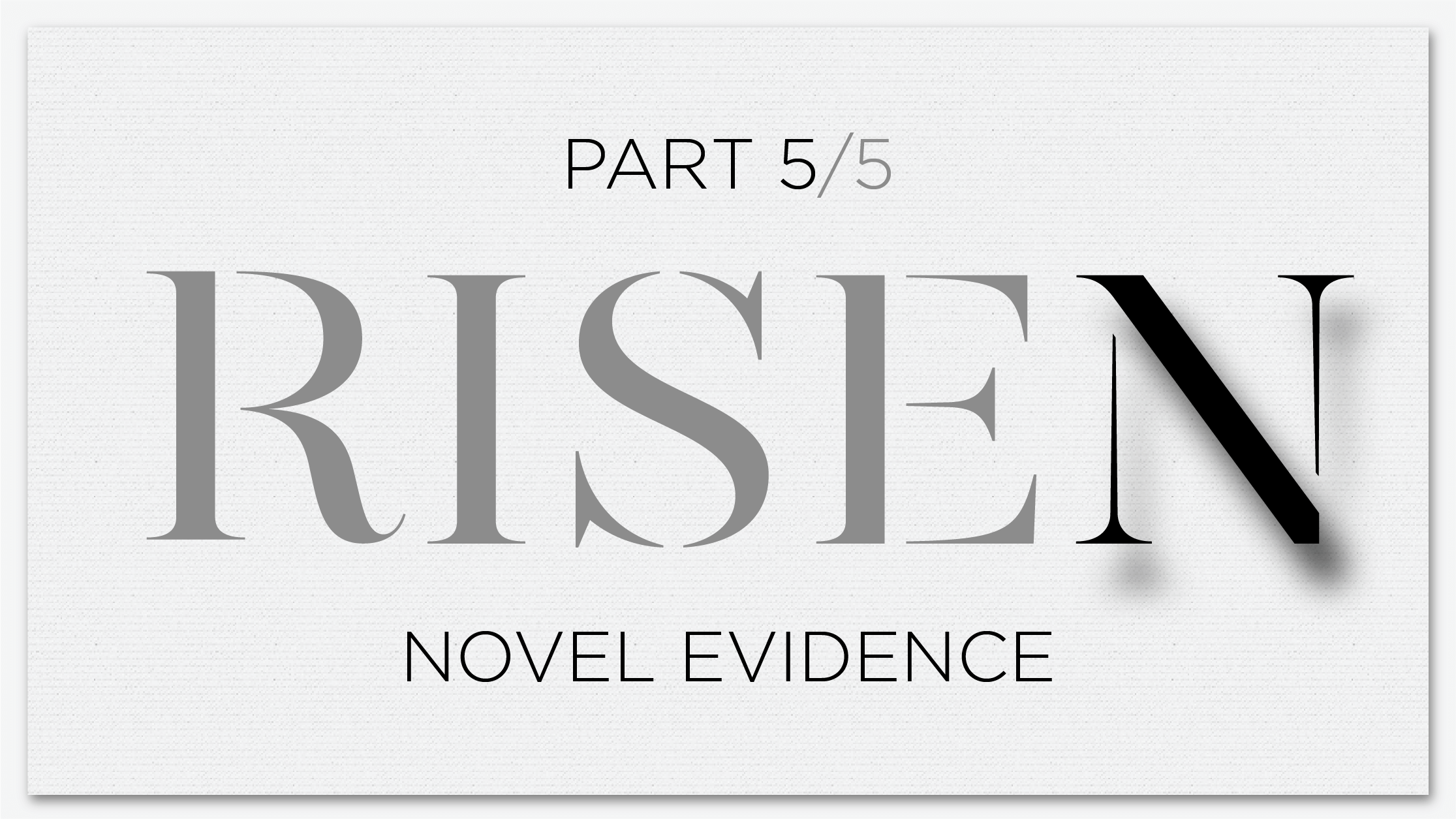RISEN, Part 5: Novel Evidence
This post is Part 5 of our RISEN series. You can also read the Introduction, Part 1, Part 2, Part 3, or Part 4.
I have argued that if the disciples invented the resurrection, it was an embarrassingly bad invention. But there is an even bigger problem to the conspiracy theory than embarrassing details surrounding the resurrection. It’s the idea of a resurrection at all.
If you recall from Part 3, we discussed the abrupt conclusion to Mark’s gospel, which consequently led to spurious additions to “fix” the awkward ending. But in actuality, it is the abruptness and confusion of the earliest gospel that makes it so compelling. Again, Mark ends with these words in 16:8, “And they went out and fled from the tomb, for trembling and astonishment had seized them, and they said nothing to anyone, for they were afraid.”
Literarily speaking, that is a really bad conclusion to what had been a wonderful story. No explanation or application, just fear and confusion. It’s almost as if Mark is struggling to describe something for which the apostles don’t yet understand. But that is precisely the point. The resurrection was an utterly novel concept that nobody had a category for.
After 2000 years of Easter’s influence, we have grown accustomed (perhaps even numb) to the concept, but it is very important to understand that Jesus completely surprised the world when He rose from the dead. This is where N.T. Wright’s work has really added to the discussion. His massive volume The Resurrection of the Son of God is essentially proving one thesis: there is no possible way the disciples and early followers could have invented the resurrection, because it is an event that they never could have expected or even imagined.
There were many Messianic movements prior to Jesus (people claiming to be Israel’s Messiah) and they all ended the same way. The figure would die, and the movement would die with him. Not one time did the followers of one of those figures have the idea of pretending that he rose from the dead, much less try to pull off such an impossible hoax. It was a profoundly ludicrous idea. 1st century people knew very well that dead people stayed dead, and they never would have thought up the concept of a resurrection.
And yet out of nowhere the disciples started claiming Jesus of Nazareth risen from the dead, as ridiculously unlikely as that may have seemed. And the nature of the resurrection they described was likewise inconceivable. Perhaps the enchanted world of the 1st century would have believed the story that Jesus was appearing as a spirit, but that wasn’t the claim. He wasn’t a ghost. He was an actual, physical body that they could see, touch, and share a meal with. And yet there was something different about his physical body, because he would appear out of nowhere, even into locked rooms, as though the laws of time and space didn’t apply. The risen Jesus was a completely novel concept both physical and spiritual, a glorified body that the disciples never could have conceived of, let alone try to invent. And what’s more, the risen Jesus started appearing to other witnesses, entire groups of people, and even Jesus’ greatest enemy.
And then, by the time you get to Acts and the letters of the Apostles, the resurrection has moved from something entirely unexpected (what we see in Mark) to center stage of the story, the very dominant tenant of the faith. Something that was inconceivably novel becomes uncompromisingly necessary within the first years of the early Church. And from there, the rest is history.
2000 years ago history was interrupted by the world’s greatest surprise. And to this day that surprise is confronting us all with the same challenge to believe. We demand evidence, as we should. But at some point we must admit the evidence is so overwhelming that it’s now making demands of us. You can stubbornly deny the evidence and hold fast to blind unbelief, or give way to the evidence and believe what is actually true: Jesus is risen. He is risen indeed.
- Robert

